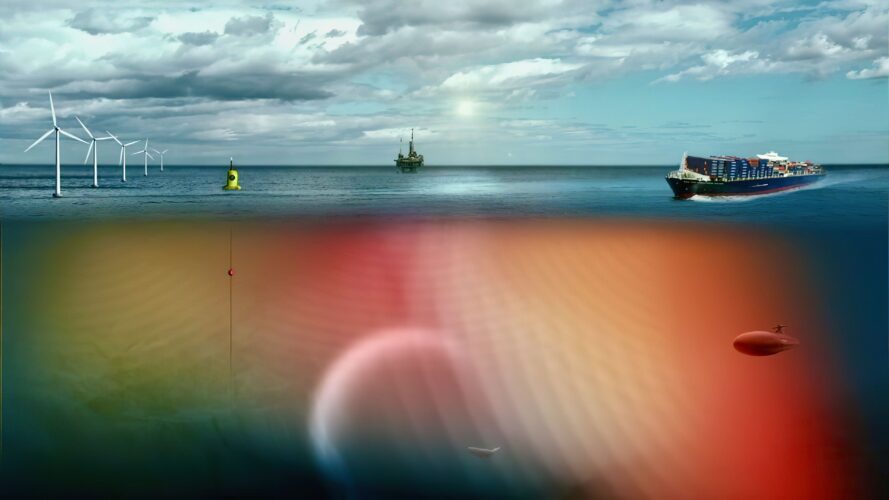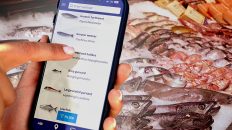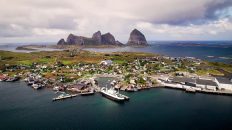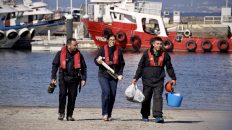“The ocean has to tell us a lot. It’s not silent. It’s very noisy, actually,” Lucia Di Iorio, a researcher in bioacoustics at the University of Perpignan, tells us.
A bioacoustician for over 15 years, Di Iorio has been capturing underwater soundscapes along Europe’s coastlines as part of the international research projects, and .
Off the coast of Brittany in France, along with her colleague Yann Fontana, Di Iorio deploys sound recording devices on the seabed to document the ambient sounds in the aquatic realm.
“Here we’re listening mainly to seagrasses and kelp. They are nurseries — little fish and little larvae grow there. They protect from erosion, they produce oxygen, they stock carbon, and they have a lot of important roles in the ecosystems,” Di Iorio explains.
Using sound recordings along with genetic samplings, scientists aim to better understand these marine biodiversity hotspots. However, the natural underwater symphony of snapping shrimps, fish communication, and other bioacoustics is often drowned out by the constant hum of passing ships.
“It’s like as if you were living next to a highway, or a busy road, and cars were passing all the time — it’s annoying! So it’s annoying for us, but it’s also annoying for the animals living in that environment,” Di Iorio adds.
Noise pollution
Scientists are becoming increasingly alarmed by the underwater noise pollution: it places additional stress on marine fauna, already threatened by numerous anthropogenic impacts. Mounting evidence suggests that noise pollution can affect a wide range of sea animals and even plants.
“We discovered that other species, namely invertebrates, which are cephalopods, crustaceans, jellyfish, coral reefs — thousands and thousands of species — were suffering probably more than cetaceans. And this has changed totally the way we were addressing these effects of noise in the marine environment,” says Michel André, the Director of the Laboratory of Applied Bioacoustics at Universitat Politècnica de Catalunya.
André’s team has deployed an international network of marine acoustic stations first developed in the LIDO project. Human-generated noise from maritime transportation, wind farm construction, industrial or military operations creates an underwater “acoustic fog” that can disorient marine animals. André’s concept of autonomous acoustic observatories could identify noise sources and issue alerts to reduce the decibel levels.
“Noise pollution is threatening the balance of the ocean, and we need to take actions to reverse these negative effects that we have introduced without even knowing that we were contaminating the ocean through sounds,” André explains.
Shipping sounds
One of the significant contributors to underwater noise pollution is global shipping. The port of Hamburg in Germany, for instance, is a busy shipping route passing close to sandbanks with a large population of seals.
Researcher Joseph Schnitzler, from the Institute for Terrestrial and Aquatic Wildlife Research, is using electronic tags to track the seals. The data from the tags shows that the animals seem to get disturbed by large ships. The noise from the propellers and engines appears to interrupt the seals’ hunting and makes them dive restlessly between the riverbed and the surface.
Such research may inform potential solutions to lessen the noise, like redesigning propellers or altering the speed and routes of ships. These efforts are part of the European project SATURN, which aims to explore both biological and engineering aspects to help cut the noise and reduce one of the many human impacts on the ocean.
As Schnitzler says, “It might be a mixture of technical solutions like change of the propeller design, but can also be some functional changes like reducing of speed of vessels or rerouting of a shipping lane. Here we have the chance to quickly change something which is not possible actually with chemical pollution or with plastic debris, microplastic in the seas. The solutions are very near.”





